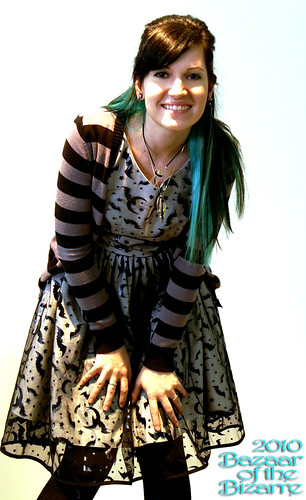
Batty's Bath only purchases ingredients from Fair Trade Compliant companies and I often get ask what exactly this means. The fair trade program has come out of the human rights & ethics movement. It's in place because many people (such as myself) are sickened that already impoverished countries are continuing to be exploited for their resources.
The basics of Fair Trade are...
...that the profits go back to the communities that produce the goods, that environmentally friendly production methods are used, and that forced labor is never used. I couldn't sleep at night if I wasn't doing what I could to ensure that each aspect of my business is only helping and not hindering anyone, anything, or any place. It's a high ethical calling but I can't imagine running a business any other way.
For more information about fair trade, check out what About.com says about it:
--------------------------------------------
What is Fair Trade? Do you ever wonder what the term "Fair Trade" means when you are shopping for skin care and beauty products? Here are the fair trade basics when it comes to skin care and beauty products.
When you're shopping for skin care and beauty products, you likely will notice when a product label reads "Fair Trade", but you might be wondering, "What is fair trade"?
When you look at the list of ingredients your product has, you may notice ingredients such as cocoa butter, shea butter, aloe and seaweed, just to name a few, that make the skin care products what they are. These natural ingredients come from farmers who provide to the skin care companies.
What typically happens is that the farmer sells to a middle man, who may sell to another middle man, who then sells to the company who makes the products. This leaves the farmers who produced the ingredients with only a small piece of the profits they worked so hard for. Many times the farmers and communities are taken advantage of, and are left to take what they can, instead of what they deserve.
When a company chooses to get these ingredients in a way that treats the producers fairly, they work directly with them and pay them a fair wage for their work, and their product.
Many times these working relationships coincide with marginalized communities who make their entire living producing and harvesting. Having a fair trade contract gives them the money they deserve, getting out of poverty, creating an opportunity for children to go to school, giving the community the funds to provide what is needed, such as water wells and hospitals for example.
While fair trade is growing in popularity, it is definitely not the norm. If you would like to support marginalized communities with your everyday purchases, read labels, ask employees and do your research. If you're going to make a purchase anyway, it's always nice to know that your purchase made a direct impact for the good.
{Source}



















No comments:
Post a Comment